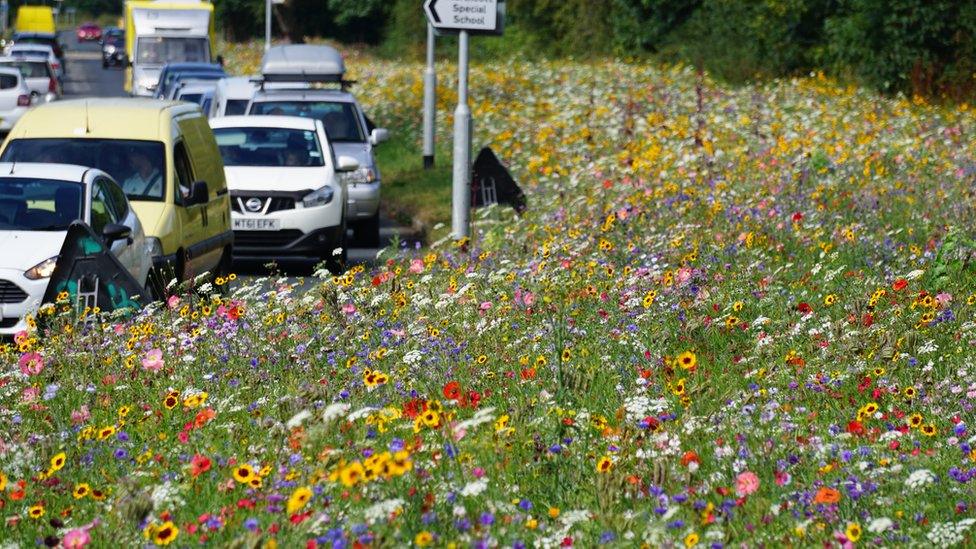Norwich: Overgrown grass verge sparks roundabout safety fears
- Published
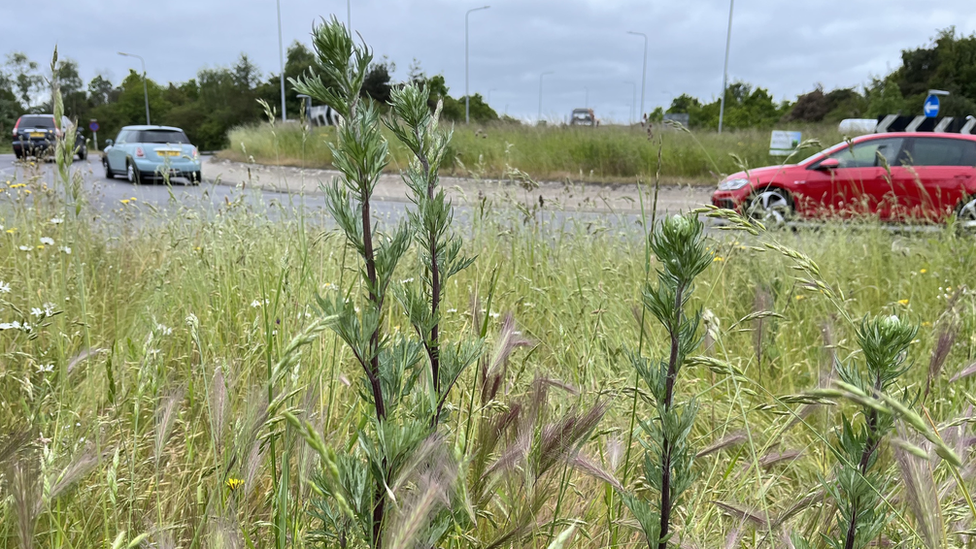
People are worried that the long grass covering the roundabout at Longwater Retail Park has become a hazard
Drivers have raised concerns that overgrown grass on a busy roundabout could cause accidents.
Listeners to BBC Radio Norfolk told how tall grass - measuring about 5ft (1.5m) high - is affecting visibility on the roundabout at Costessey, near Norwich.
The roundabout links the A47 to the Longwater Retail Park on the western edge of the city.
Norfolk County Council, which maintains the roadsides, said it wanted to keep the verges "free for the wildlife".
Graham Plant, from the council, said: "There's a fine balancing act, but we do take safety as a priority."
The council said its policy, external was not to mow roadside verges for the sake of appearances, but it inspected any sites prompting complaints.
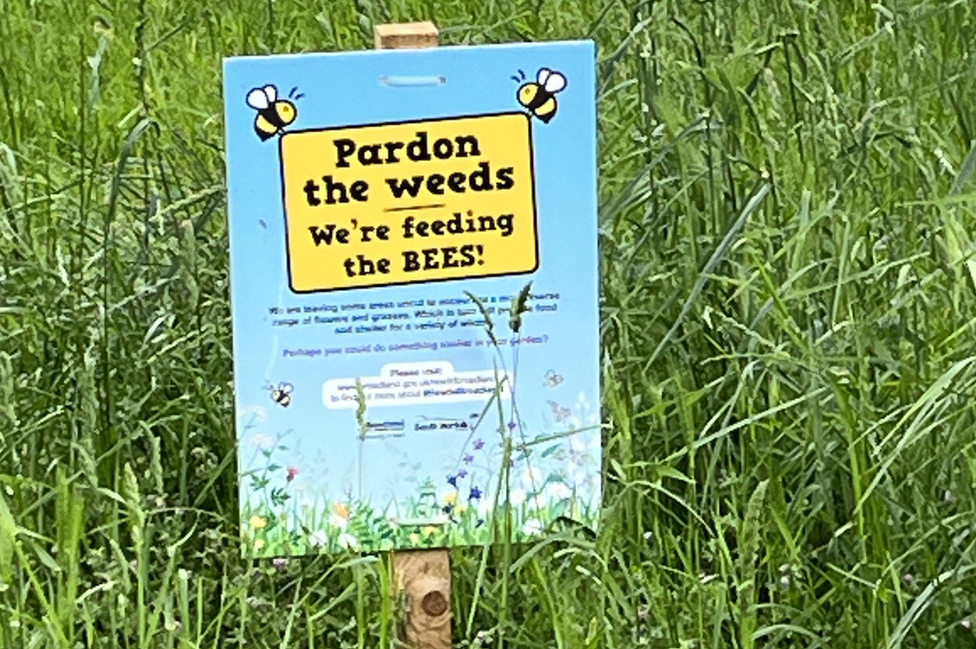
A sign explains that flora is being allowed to grow for the benefit of fauna
It said if a problem was identified, the area would be cut normally within a day or two.
However, one BBC radio listener said: "When you're approaching the roundabout and trying to exit you can't see what's beyond the roundabout because there's no visibility due to how long the grass is."
Another shared how he had spotted a "dicey moment" as a driver pulled out just as a car was coming round the junction - with the view limited by the overgrown grass.
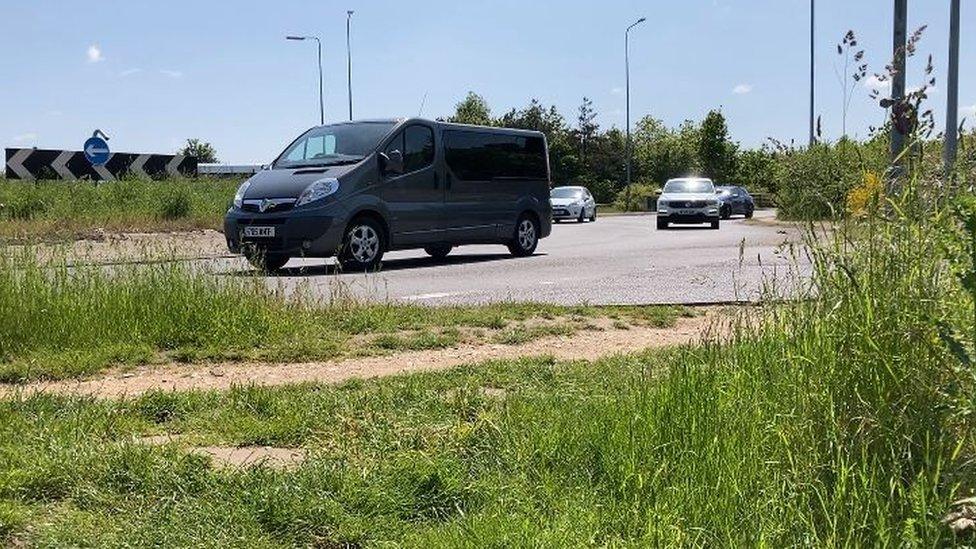
A recent spell of wet weather has accelerated plant growth
Conservative councillor Mr Plant, cabinet member for highways, infrastructure and transport, said he was unaware of any issues at the junction, but said the wet weather spell had resulted in fast-growing vegetation.
"There are protocols set for safety on a highway - if it is dangerous or proves to be dangerous - then it would be cut," he said.
"The safety element of it has to be the prime reason.
"We are working with the environment and trying to keep the grass verges... free for the wildlife."
Mr Plant said the visibility from certain junctions was worked out over years and verges were then cut back on average about four times a year.
Norfolk Wildlife Trust (NWT) said leaving grass verges to grow boosted nature and wildlife, but that safety was still key.
Conservation officer Sam Brown, from the charity, said there were now 100 road verge nature reserves in Norfolk and they hoped the number would triple.
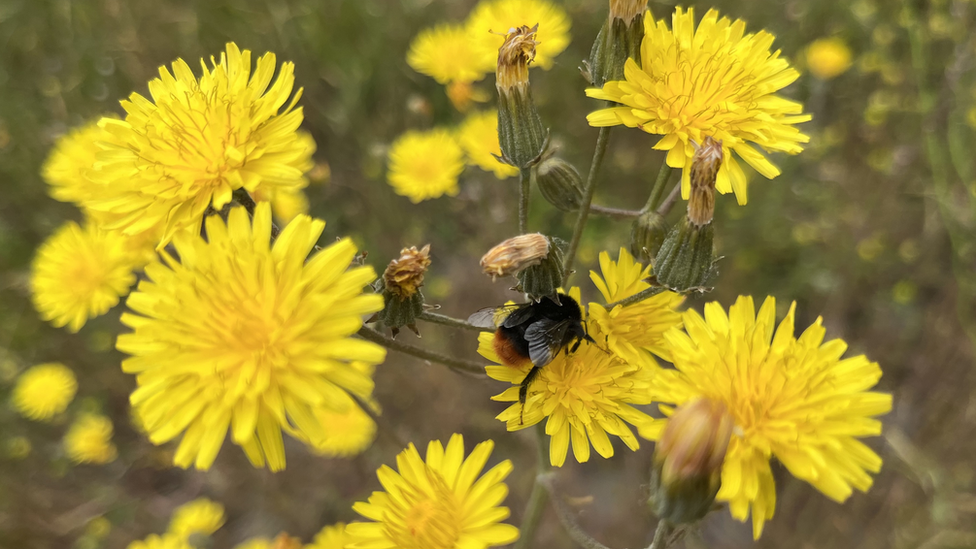
Allowing flowers to grow has attracted bees to the verge
She said the NWT worked in partnership with the county council to increase biodiversity in these roadside stretches, but appreciated that people sometimes found them untidy.
"We totally support verges being cut where health and safety and visibility is an issue," said Ms Brown.
"We totally support the rest of the verges being uncut from April/May through to August/September because they can support an amazing diversity of plants - you get all sorts of quite scarce plants in Norfolk.
"These flowers support pollinators, all sorts of bat, birds and small mammals. They act as corridors and refuges for wildlife as they're travelling across the landscape."

Follow East of England news on Facebook, external, Instagram, external and Twitter, external. Got a story? Email eastofenglandnews@bbc.co.uk, external or WhatsApp us on 0800 169 1830
Related topics
- Published7 April 2023
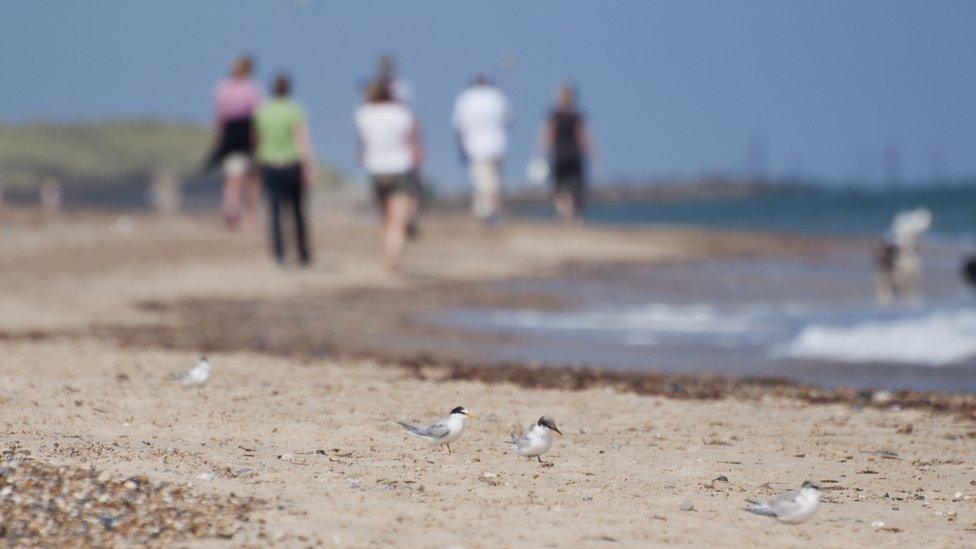
- Published18 September 2022
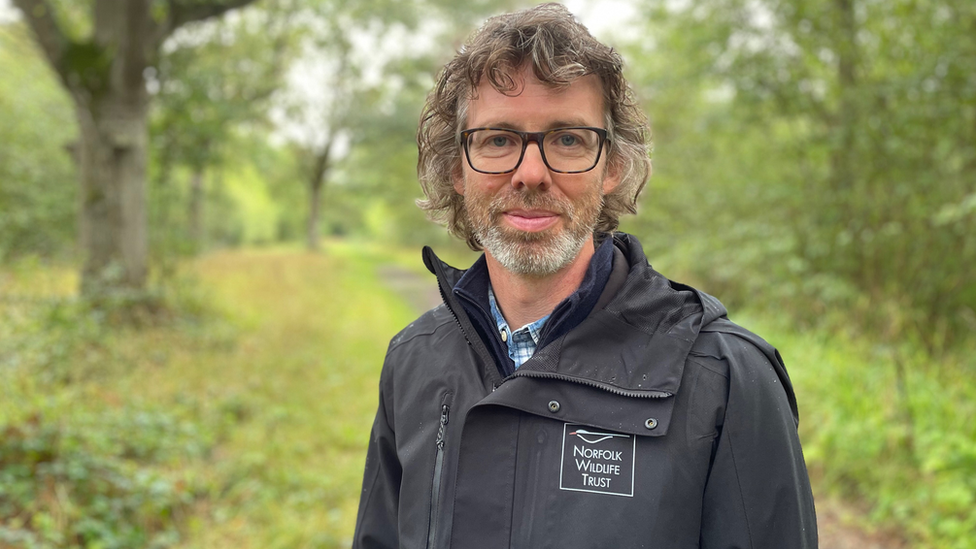
- Published22 June 2022
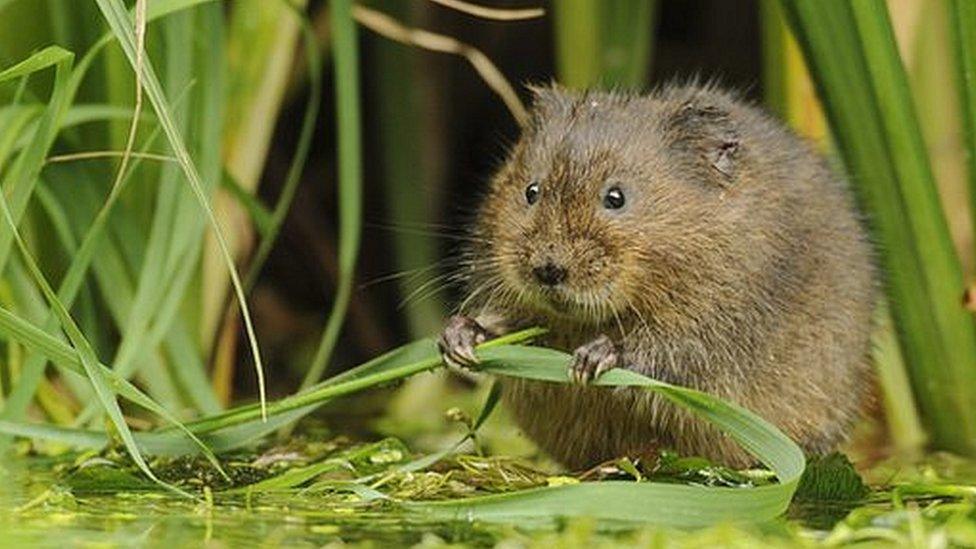
- Published2 July 2019
